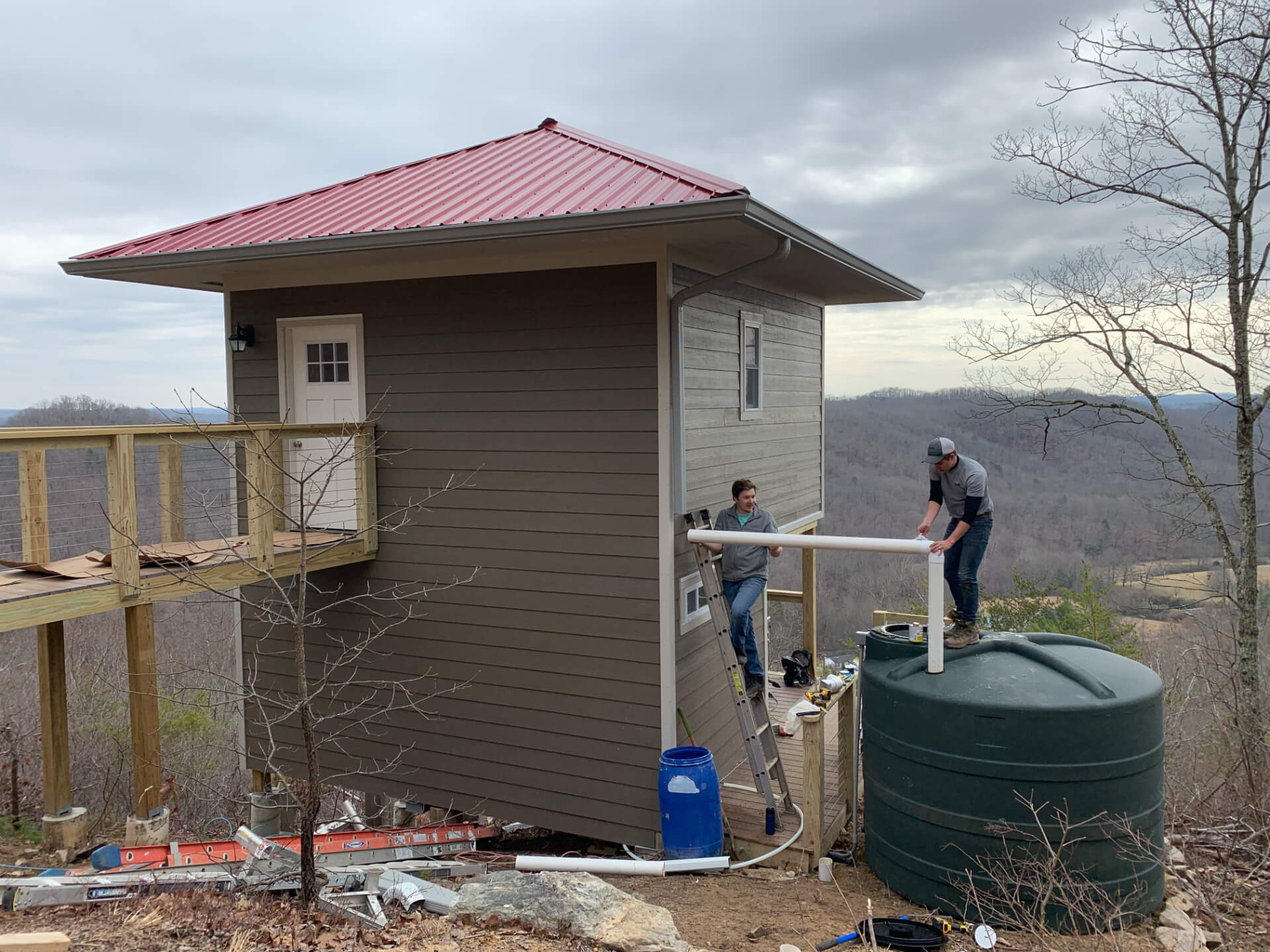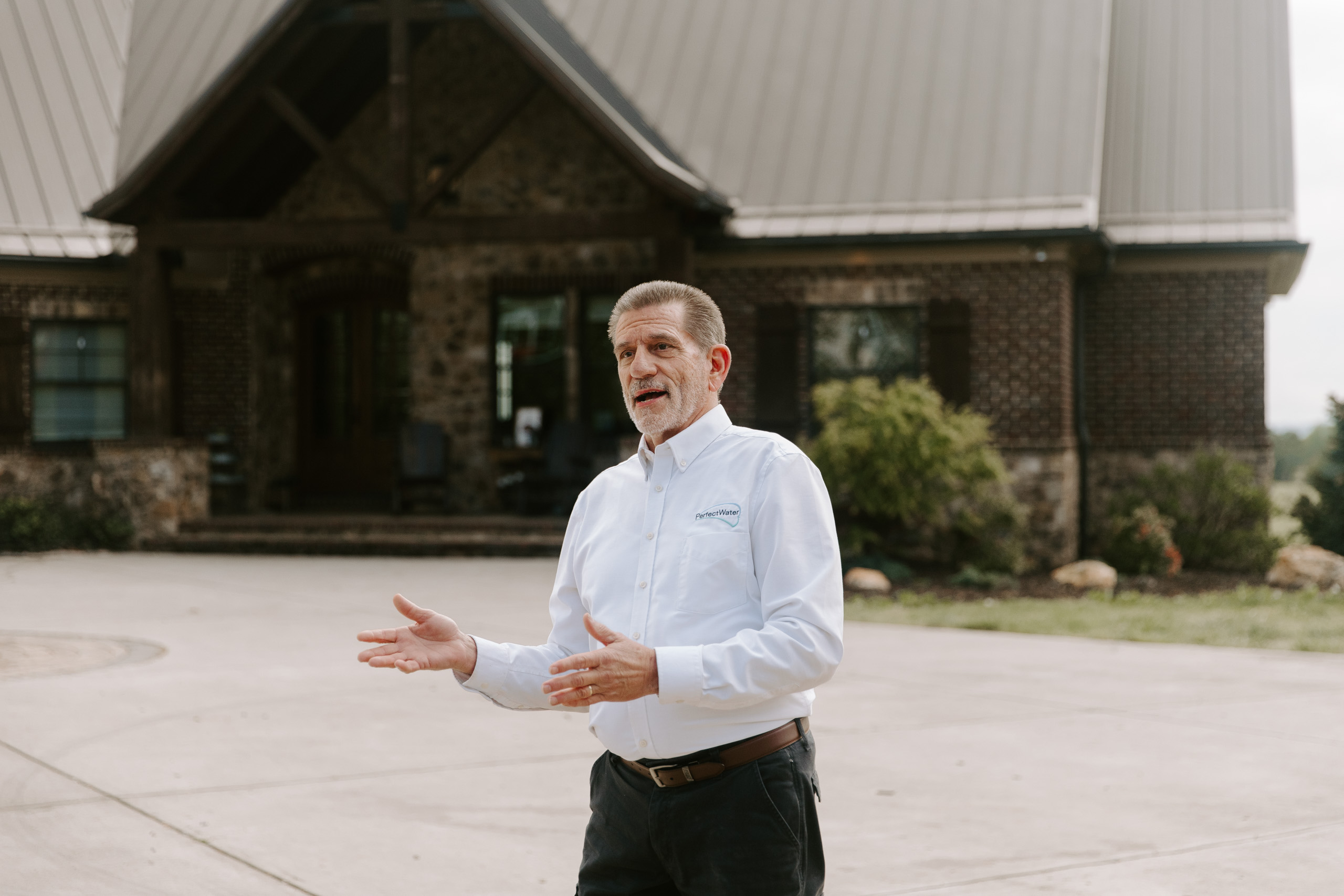Gutter Water Catcher - Meet Rainwater Harvesting

There are so many benefits to collecting rainwater, so it makes sense why more and more people are doing it. Of course, some people have been harvesting rainwater for years and even generations. Still, the way we harvest rain has improved since the days of a gutter leading to a barrel.
Today there are more systems than ever designed to catch rainwater, but like anything that gains popularity, there are just as many knock-offs and low-quality products as there are quality water systems. To make matters worse, some DIYers think that a rainwater harvesting system is still as easy as aiming your downspout and calling it a day.
So, before you install a gutter water catcher, consider how a whole-home rainwater harvesting system could be a better option.
Not All Rainwater is Drinkable
In theory, rainwater is about as pure as it comes since it comes straight from the sky, but there are a few things to consider.
While water coming from the sky is fresh in most cases, it isn't always as there could be contaminants in the air. A more common source of water contamination is what rain runs over and through on the way to the gutter. The CDC warns rainwater can carry bacteria, parasites, viruses, and chemicals that can potentially make you sick, and rainwater has been linked to disease outbreaks.
When water lands on your roof or flows through the gutters, it can contact all kinds of bacteria, from animal feces and rotting plant material. Even without biological contaminants, there is still a chance that the water can collect toxins from gutters and roofing materials.
The likelihood of this happening is exponentially higher with DIY projects because homeowners may not know which materials are safe for their harvesting system. Or worse, they may know and disregard the severe health problems caused by contaminated water.
The Water Purification Process
One of the most significant benefits of a professionally installed rainwater harvesting system is the purification process that guarantees the cleanliness of your water.
There are many different DIY water harvesting solutions, but most only use screens to siphon out large debris, leaving the microscopic contaminants behind.
Our rainwater harvest system also uses screens, but that is only the first step. When the water is pulled from the tanks for use in the house, it goes through carbon and sediment filters and a UV light to ensure it is safe for drinking and other services.
Pros and Cons of DIY Rainwater Harvesting
Having a better understanding of the pros and cons of DIY rainwater harvesting will give you the information you need to make an informed decision.
Pros
- A sense of self-satisfaction that you took on such a large project yourself.
- Save a little money
- You will have a small amount of water to use in emergencies.
- Protect the ground directly beneath the gutter from erosion.
Cons
- A lack of purification means that you will need to take extra steps or risk health problems.
- You will likely only have a few days' water supply at best.
- DIY rainwater harvesting systems often don't run directly to the house, and if they do, they don't have strong water pressure.
- Having to do more work to determine the best place for the system and understand how much rain you can expect to collect.
- Risking not pulling the proper permits and ensuring your system is up to code.
- No drought protection.
Cost Comparison
One of the main drivers preventing people from having a rainwater harvesting system professionally installed is that they think the cost differential is significant, but it may be closer than you think.
First of all, there are certain costs that you will have to incur no matter which way you go, like pulling building permits, the cost of wiring and piping and the connections from the harvesting system to the house. In addition, if you install an in-ground or partial in-ground system, you will have to pay to rent the excavating equipment.
In contrast, a professional harvesting system installer will already have that equipment. Using the wrong materials, the time it takes to learn how to install the system, and any other setbacks common to DIY projects will also affect your bottom line.
After all that, the actual costs arise after installing the system. If you have chosen the wrong materials or if a substandard material breaks, you will have to spend extra time and money replacing that part, and hopefully only that part. Finally, the consequences of your family drinking water that hasn't been filtered adequately for contaminants is more than any rainwater harvesting system could ever cost.
It's Not Just a Barrel Anymore - FAQs for Interested Harvesters
Can a Professional Rainwater Harvesting System Replace City Water?
Yes! Unlike smaller DIY systems, our tanks hold enough water and provide strong and consistent water pressure, just like having city water. Another benefit is that in the unlikely event that you run out of water, your system will automatically switch back to city water until your tanks recharge.
Is Rainwater Harvesting Legal?
Rainwater harvesting is legal in all 50 states, but it's not black and white. Some states, like Colorado, have pretty strict restrictions on rainwater harvesting, while other states encourage the act.
Why Choose a Rainwater Harvesting System?
There are so many benefits in switching to a rainwater system, and the this is the best one you will ever use. The water is cleaner and safer than well and city water, and it is more environmentally friendly. Perhaps the most significant benefit is being off-grid, so you don't have to pay city water bills, and you know that your family will have potable water in the event of a disaster.
Peace of Mind With Professionals
When it comes to rainwater harvesting, even gifted DIYers should probably leave this one to the pros. The end product will be safer, and you get so many more benefits than you would by going it alone. When you are ready to take the next steps, contact us!
Ready to Take Control of Your Water Supply?
Don’t wait for water shortages or unreliable sources to disrupt your life. With our Rainwater Harvesting systems, you can enjoy a sustainable, reliable, and completely self-sufficient water solution tailored to your home’s needs.

